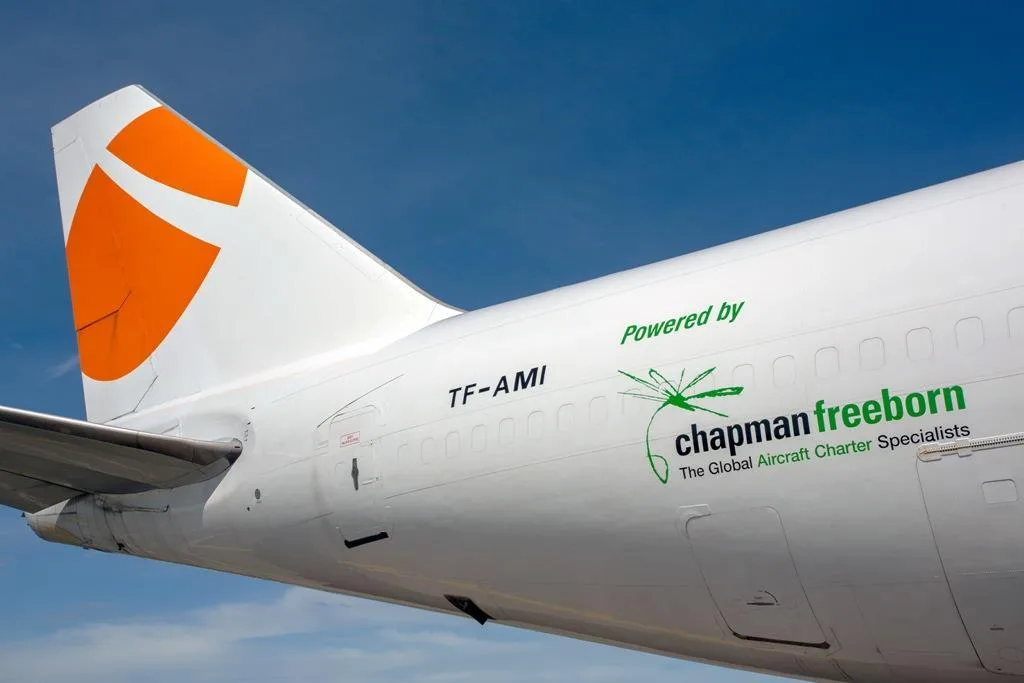Understanding the Role of Aviation Services in Hurricane Relief
The hurricane season kicks off on June 1st, signaling an intense period for the Americas. Predictions from Colorado State’s hurricane forecasting team suggest that this year could see around nine hurricanes, with four classified as major storms. This forecast mirrors the 2024 season, notorious for being one of the costliest on record, ultimately featuring a pair of category 5 hurricanes. Aviation services are indispensable in the immediate aftermath of such disasters, facilitating the delivery of crucial supplies and ensuring emergency personnel can access regions in dire need.
As a key player in this arena, Chapman Freeborn stands out as a global specialist in emergency and humanitarian aviation services. A component of Avia Solutions Group, this company boasts a dedicated Aviation Emergency Service (AES) division. With over 50 years of operational expertise—including missions executed during Hurricanes Katrina, Milton, Dorian, and Maria—Jack Burt, the Senior Vice President of Cargo for the Americas, provides insights into the preparations made by the aviation industry for hurricane-related emergencies.
Delivering Critical Supplies Post-Hurricane
The aftermath of hurricanes brings various challenges, with severe winds, storm surges, and flooding wreaking havoc on essential infrastructure. Consequently, aviation services play a pivotal role in managing these crises through the rapid transportation of vital equipment and supplies.
“After a hurricane strikes, we’re typically tasked with delivering power generation equipment along with supplies like water, Meals Ready-to-Eat (MRE), and other foodstuffs. Medical necessities, such as mobile hospitals, equipment, medicines, and vaccines, are also a high priority,” explains Burt.
Preparedness as a Key Factor for Chapman Freeborn
As the 2025 hurricane season looms, there is a pressing message from Burt directed at clients and partners: remain calm.
“Every natural disaster is distinct, but preparation is key. With over 50 years of experience and a robust global network of airline partners, Chapman Freeborn is always ready for action. We can mobilize an aircraft and crew within mere hours to tackle emergency situations. In extreme cases, our response time can be as short as 60 minutes,” states Burt.
Leading up to the Atlantic hurricane season, Chapman Freeborn has been diligently working to maintain its state of readiness, assuring that operations, once underway, are executed safely and proficiently.
“Our operations team engages in comprehensive business continuity and staff planning. We also prioritize the physical preparedness of our offices and have established evacuation plans,” adds Burt.
“The Cargo team is equipped with rapid response cargo transportation solutions in the Americas,” Burt continues. “This means having aircraft, trucks, ground handling agents (GHAs), and logistics service providers (LSPs) available and primed to respond to hurricane threats.”
By operating as a charter broker, Chapman Freeborn has cultivated strong connections with partners worldwide, ensuring the swift deployment of any aircraft size whenever necessary. “We continuously work to preserve our extensive network of airlines, suppliers, and partners who are always prepared to mobilize during hurricane season,” remarks Burt. “Ongoing preparedness discussions ensure that the logistics are firmly in place at all times.”
“An important aspect of our readiness is the focus and resilience of our team,” Burt elucidates. “Hurricane season can be unpredictable and stressful. Regular training exercises bolster the team’s capabilities, while having experienced leadership instills confidence in our operations, even under pressure.”
Coordinated Actions for Effective Relief Delivery
When Chapman Freeborn steps in to provide support following a hurricane, it relies on a well-coordinated response with governments, NGOs, and private sector partners. “Executing urgent humanitarian relief flights necessitates extensive collaboration, typically overseen by our staff to guarantee connectivity and transparency along the humanitarian supply chain. This chain includes airlines, airport authorities, civil aviation authorities, NGOs, ground handling agents, and logistics partners, among others,” elaborates Burt.
This case illustrates some of the intricate logistical challenges involved in hurricane relief airlifts. Quite often, operators may be among the first to access areas recently ravaged by storms, facing uncertain airport conditions and slow or non-existent communication channels. “Planning a charter flight under such circumstances is fraught with difficulties. For our Hurricane Milton operation, we liaised with three different airports until just before our departure, confirming the safest one to use. This flexibility allowed us to monitor forecasts, devise multiple contingency plans, and react quickly to the ever-evolving situation,” Burt reflects.
Overcoming Geographic Challenges in Cargo Delivery
“Another significant challenge associated with hurricane relief flights is delivering large volumes of cargo to remote or hard-to-reach areas, such as small Caribbean or Hawaiian Islands,” Burt explains. “In the aftermath of Hurricane Maria in 2017, our Cargo team performed numerous charter flights to Puerto Rico, bringing crucial supplies and infrastructure materials to aid in the island’s recovery.”
Throughout its history, Chapman Freeborn has engaged in global disaster relief operations, flying both passenger and cargo charters to remote locations including Pakistan, Haiti, Nepal, Yemen, Darfur, South Sudan, and the Democratic Republic of Congo. “Geography is never a barrier for the AES team. We have the planning and logistics in place, and our extensive partner network enables rapid responses to hurricanes no matter where they land,” states Burt.
Conclusion: The Importance of Global Preparedness
In summary, aviation services undeniably have a crucial role in hurricane relief operations, proving essential for effective supply delivery during challenging times. Preparedness, coordination, and resilience define the efficiency of such services, underscoring their importance in logistics. While insights from reports and expertise provide valuable information, nothing matches the wisdom gleaned from personal experiences.
To navigate the nuances of logistics seamlessly or facilitate your next cargo transportation, GetTransport.com stands ready to offer affordable, global solutions tailored to your needs. This platform simplifies the complexities of logistics with diverse options and ensures transparency throughout the process, empowering you to make informed decisions without unnecessary costs. Experience how convenience and reliability shape your logistics journey by booking your next transport at GetTransport.com.com vandaag!

 De impact van luchtvaartdiensten op de hulpverlening bij orkanen onderzoeken">
De impact van luchtvaartdiensten op de hulpverlening bij orkanen onderzoeken">